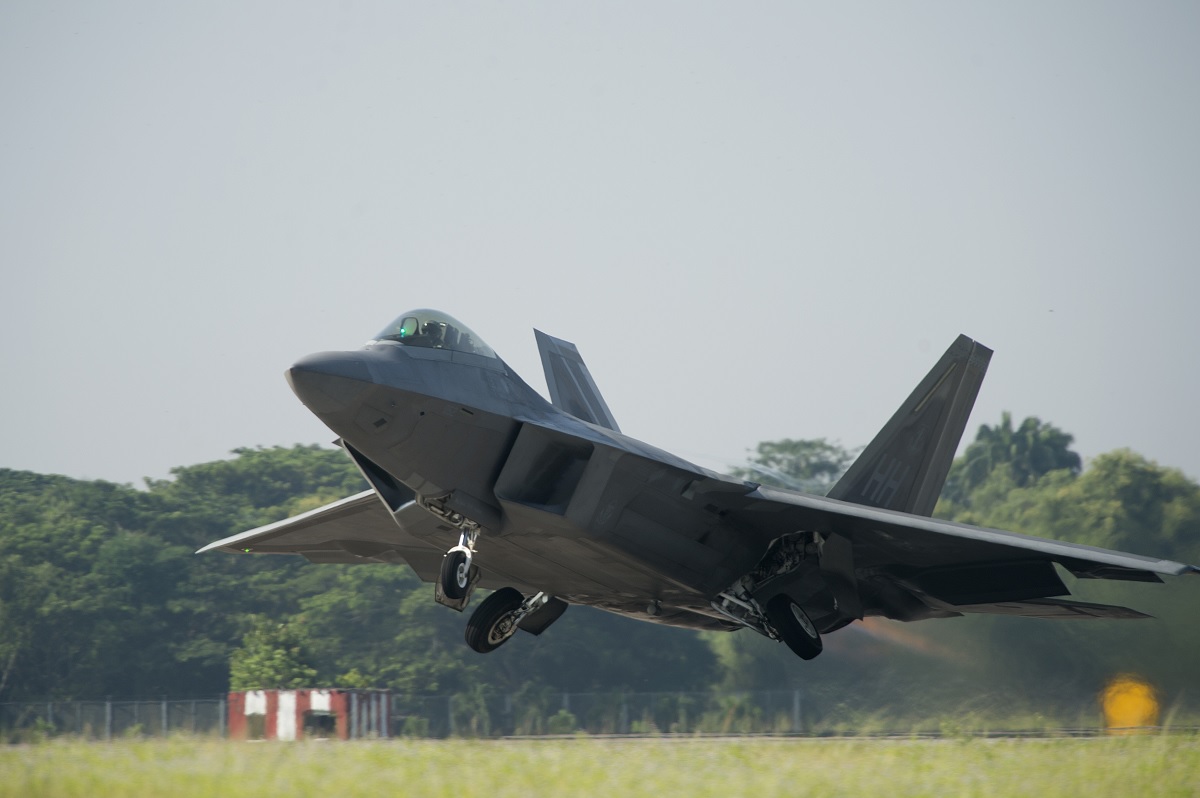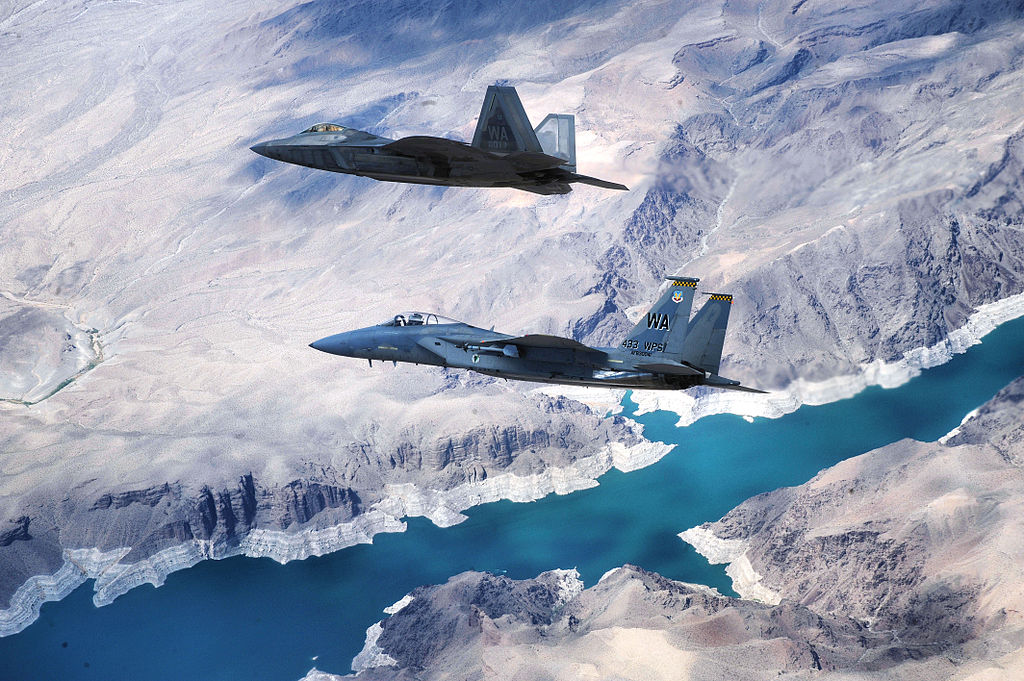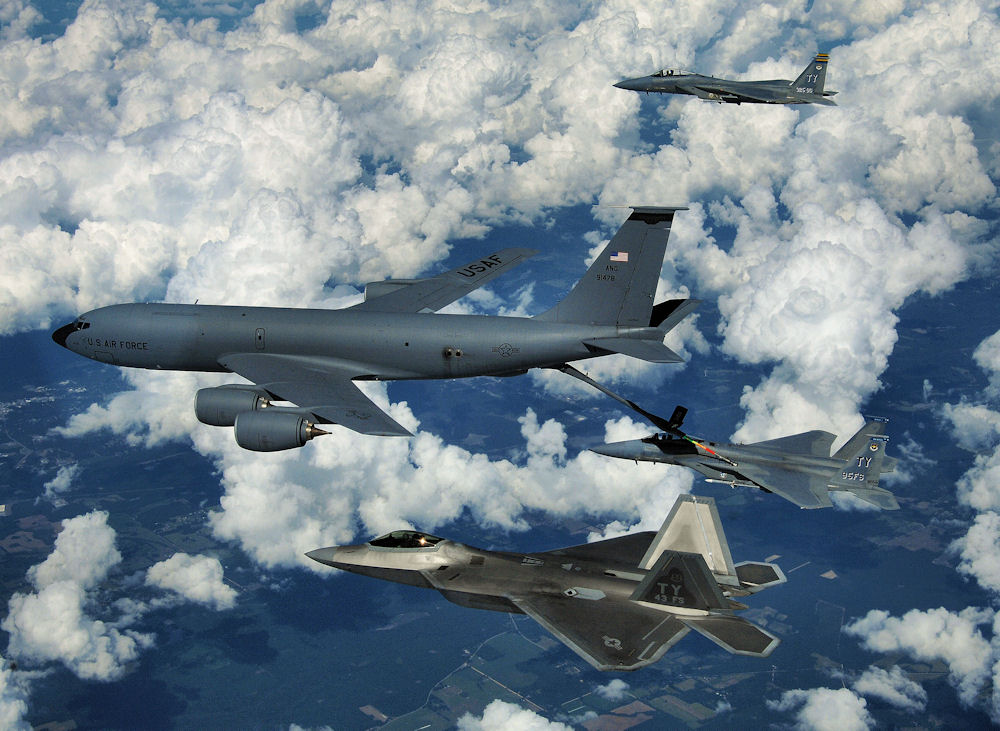After six years of development, the F-22 Raptor made its first flight on September 7, 1997, in Marietta, Georgia
After six years of development, the F-22 Raptor made its first flight on September 7, 1997, in Marietta, Georgia, as the video in this post shows. The Raptor is a pathfinder for the next generation of air dominance and continues to provide the US and its allies air superiority.
The Raptor, which is propelled by two Pratt & Whitney F119 engines, combines stealth, speed, maneuverability, and strong warfighting capabilities. Air dominance is ensured by a set of sensors and very lethal weaponry, supporting the mission at hand.
Boeing and Lockheed Martin collaborated in the mid-1990s to design and build the F-22, a highly advanced tactical fighter that combines maneuverability, integrated avionics, and stealth. The F-22 was intended as a replacement for the F-15 as America’s front-line dominance fighter.
On April 9, 1997, Lockheed Martin, Boeing, and Pratt & Whitney conducted a rollout ceremony to unveil the first production F-22. It was the first of nine flyable F-22s built for flight testing.
Lockheed Martin Aeronautical Systems, a division of Lockheed Martin Corp., based in Marietta, Ga., was responsible for program management, the integrated forebody (nose section) and forward fuselage, including the cockpit and inlets; the wing leading edge, the fins and stabilators, flaps, ailerons, and landing gear, and the final assembly of the aircraft.
Lockheed Martin Tactical Aircraft Systems, based in Fort Worth, Texas, was responsible for the center fuselage; store management; integrated navigation and electronic warfare systems; the communications, navigation, and identification system; and the weapon support system. Boeing in Seattle, Wash., built the wings and aft fuselage, including the structures necessary for engine and nozzle installation, and was responsible for avionics integration, 70 percent of mission software, the training system, the life support and fire protection systems, and the pilot and maintenance training systems.
Although the F-22 entered service in 2005 and won the prestigious Collier Trophy in 2006, it faced controversy in the following years regarding its expense and suitability in the post-Cold War world. The next generation of Soviet fighters that the aircraft was supposed to dominate in air combat never materialized after the fall of the Soviet Union. In April 2009, the US Department of Defense declared that it would stop producing F-22s after 187 aircraft. The last F-22 was delivered to the Air Force in 2012.
The F-22 Raptor made its combat debut in September 2014 when it coordinated attacks against Islamic State (ISIS) strongholds in Syria with other fighter jets and bombers.
Photo by Lockheed Martin























